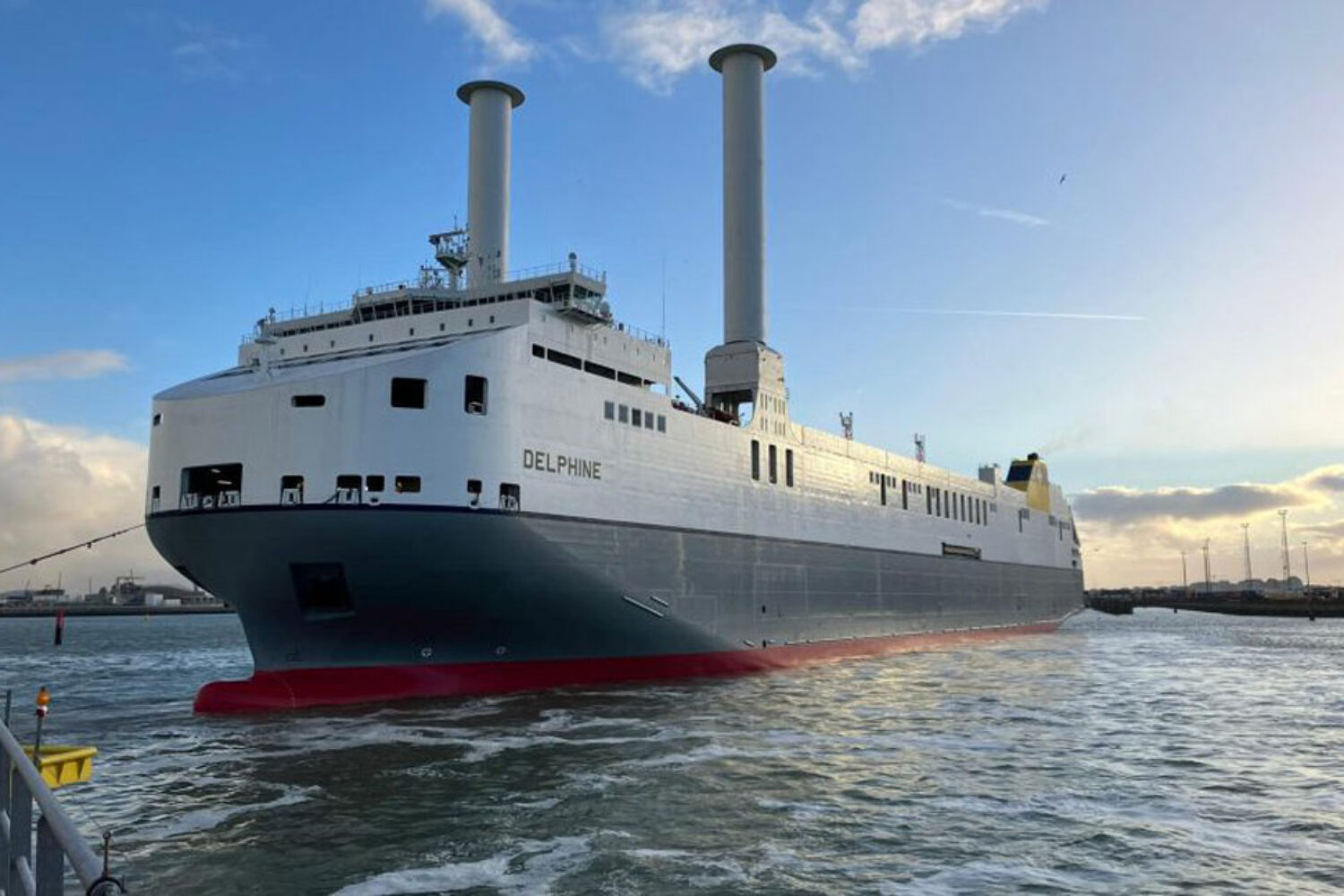The shipping company CLdN, which operates more than 30 ships in Europe, wants to benefit financially from the condition of its relatively modern fleet and is offering itself to the industry as a “pooling” partner as part of the FuelEU Maritime fuel regulation.
The shipping company, which is part of the Cobelfret Group and primarily operates ro-ro vessels, but also recently attracted attention with an order for the construction of an entire series of container ships, is offering a new service “that enables potential partners to meet the stricter EU environmental standards”.
Jasper Meireman, Head of Shipping Operations at CLdN, explained the move: “All our ships can run on either biodiesel or bio-LNG. By switching our fuel mix to a higher proportion of sustainable biofuels, we can help other ship owners and operators to comply with regulations and reduce costs.”
Founded in 1929, CLdN offers shortsea roll-on/roll-off (RoRo) services between continental Europe, the UK, Ireland, the Iberian Peninsula and Scandinavia with 30 vessels and more than 200 sailings per week. The RoRo vessels are primarily used to transport vehicles as well as heavy-lift and MPP cargoes.
CLdN’s fleet is “top class”
According to the shipping company, the fleet is “top class” in terms of CO2 emissions. In 2023, the weighted average fleet emissions were 39 g CO2/tonne-kilometer, which is “19% better than the next best competitor short sea shipping.” To reduce fuel consumption and emissions, CLdN has invested in new, larger, more fuel-efficient ships and in upgrading its existing ships.
The FuelEU Maritime Directive is known to aim to reduce greenhouse gas emissions in maritime transport by promoting the use of renewable and low-carbon fuels. However, this approach is associated with higher fuel costs, as biofuels, which can lead to a significant reduction in well-to-wake and tank-to-wake emissions, cost between 50 and 150% more than conventional fossil fuels.
Meireman commented: “Biofuels are considerably more expensive and pose procurement problems for companies that do not have the option of bunkering biofuels or that operate irregularly in EU waters. The financial penalties for non-compliance with the requirements are considerable. One solution is pooling, which will now be offered (other companies are already doing this, such as Gasum and Wasaline).
Companies can decide for themselves which routes to compliance they want to take. Pooling is one of the possible compliance options. To facilitate compliance, FuelEU Maritime allows the voluntary pooling of emission reductions between ships. This means that ships that are over-compliant can offset the emissions of ships that are non-compliant, in other words, compliance can be offered as a service.
Borrowing and banking are also possibilities: With borrowing, operators “borrow” expected future over-compliance with targets to make up for current shortfalls. With banking, if they fall short of the targets in the reporting year, they can carry this difference forward to the following year. Companies can also integrate biofuels into their fuel mix in order to reduce the greenhouse gas intensity of their ships.













